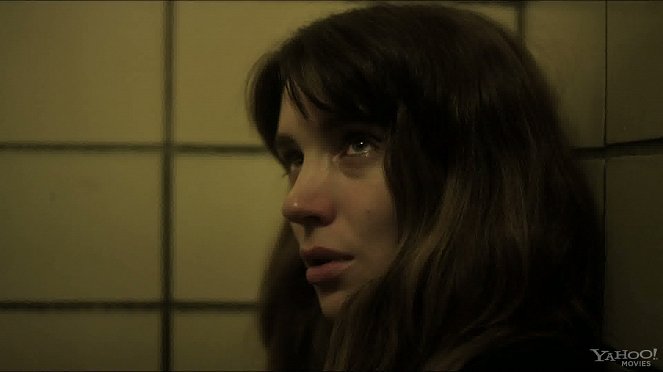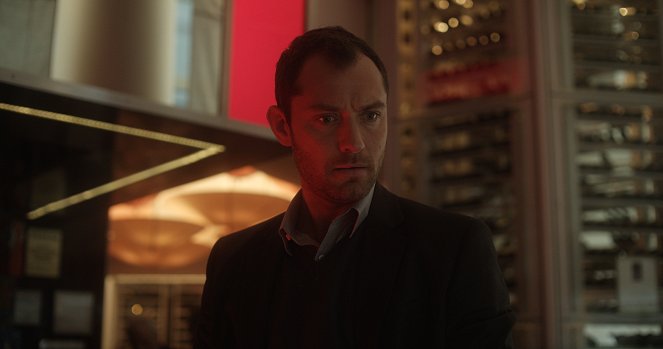Directed by:
Steven SoderberghScreenplay:
Scott Z. BurnsCinematography:
Steven SoderberghComposer:
Thomas NewmanCast:
Jude Law, Rooney Mara, Catherine Zeta-Jones, Channing Tatum, Vinessa Shaw, Ann Dowd, David Costabile, Peter Friedman, Mamie Gummer, Polly Draper, Andrea Bogart (more)VOD (3)
Plots(1)
Emily (Rooney Mara) and Martin (Channing Tatum) are successful New York couple whose world unravels when a new drug prescribed by Emily's psychiatrist (Jude Law) intended to treat anxiety has unexpected and dangerous side effects. From director Steve Soderbergh comes a riveting psychological thriller where neither the symptoms nor the cure are quite as straightforward as they seem. (Entertainment One)
(more)Videos (13)
Reviews (10)
If you’ve seen Prisoners, congrats—you’ve watched two of the best Hollywood thrillers of 2013. Side Effects starts off feeling pretty grounded, but things quickly spiral into a full-blown writing frenzy that only the ending manages to reel back in. Luckily, it all works out in the end. What really got me, though, was Rooney Mara. At first, I saw her as this fragile, beaten-down girl, and it felt relatable—like someone going through the same struggles as many of us. But then the story takes a turn so wild, even we as a nation would have trouble digesting it. Still, without giving too much away, I think the struggles she faces in the film, much like the ones we face in our own lives, are like the crust of a sandwich—we might grumble, but we’ll eat it and move on. Side Effects is one of those rare thrillers that sticks with you and makes you think. You might not come up with any profound revelations, but you’ll feel a bit more satisfied, if only because you’ve just watched a solid, classic American thriller—something we don’t get enough of these days.
()
SPOILERS AHEAD. With the opening Psycho shot, Soderbergh tips his hat to Hitchcock, the father of grown-up thrillers, for whom playing with the viewer was also more important than the convincingness of the games that the characters play with each other. The camera angles are improbable, yet effective and full of meaning. They point out the deviant nature of reality as Emily perceives it (or rather how we are supposed to think she perceives it), often situated outside the centre of the shot (of course, if she is speaking for herself, i.e. not in her role, the centre belongs to her). The off-kilter shot compositions give rise to the disturbing feeling that something is missing and that, like Jon, we do not know everything. Whenever a close-up is used, it has a “higher” justification, which is revealed in the second half of the film. Furthermore, the close-ups, some of the dialogue and the music lead us in the wrong direction, creating the false impression that this is a pharmaceutical thriller with dangerous drugs as the main culprit (Ablixa ultimately turns out to be only a MacGuffin), or perhaps a mysterious film-noir (the Haitian who saw a ghost, the eerie “ringing” musical motif recalling the sleigh bells in Belle De Jour). But then comes the first twist, bringing about changes in the narrative perspective and the existing allocation of roles. Only the second viewing makes it possible to appreciate the casualness with which we are made aware of the fact that Emily is faking her mental disorder. Her first scene begins with a close-up of her lips, to which she applies lipstick before her performance. She is subsequently surrounded by mirrors throughout the first half of the film. Doubts about who is actually the culprit and who is the victim – doubts that give rise to a significant part of the film’s dramatic tension – persist even after the final shot, which serves as a symbolic closing of the circle. Instead of a linearly constructed thriller with clearly defined characters, we watch a disturbingly cyclical detective story (like a boomerang, the crime that Martin committed comes back to haunt him) with a capricious perpetrator. In addition to flawless craftsmanship, Side Effects offers warnings about the misuse of medical authority (and confidential information in general) and allusions to the financial crisis. Mainly, however, the film refers to the time of its making through the lens of a cynical society in which money and prestige have greater value than human life. Soderbergh has dealt with the business-like aspect of interpersonal relationships before, but thanks to a genre allowing more consistent (or more ruthless, if you prefer) manipulation of the characters, in Side Effects he succeeded in getting down to the marrow. 90%
()
Steven Soderbergh's surgically precise direction dominates this cold, seemingly pharmaceutical fraud. A standard set-up, a brilliantly tangled in the middle and a worthy finale. A film with a plethora of perfectly cast roles, tight reins and an unpredictable plot. I wouldn't be afraid to call it one of the best thrillers of the year. It's not as atmospheric and emotionally charged like Prisoners, but here everyone is evil, which is a very interesting cinematic twist. Usually when Soderbergh makes movies, it's not about good and evil characters, it's about who knows how to walk the walk.
()
It's almost as if this Soderbergh guy has something against the pharmaceutical industry. He follows Contagion with the more intimate Side Effects, whose tone once again casts the very principle of pharmacy in a less than favorable light. The problem isn't just with the pharmaceutical industry, of course (which makes it all the worse); indeed, where there's opportunity, there's a human being. I loved the initially slow, almost unnerving pace, which builds up brutally, and perhaps a little forcefully, in the last act, only to have the great Steven eventually convince you that some things really may not be as they first appear. Brilliant camerawork that perfectly underscores the main character's feelings *SPOILER ALERT* (it does gets a bit ridiculous with those feelings, and anyone who's seen it knows what I mean:)) *END SPOILER*, Soderbergh's focused and once again very evocative direction combined with the unsettling soundtrack for me made this one of Soderbergh's best films in recent years.
()
An outstanding and rather (very) subversive genre piece which stands and falls with its conclusion. And it‘s with that final explanatory and point making last ten minutes that there is a problem, and not just one. Not that it’s borderline stupid or that it doesn’t make any sense, but.. There simply are few absolutely crucial buts. Which makes you doubly sorry, especially with a movie that’s coherent as this one.
()



Ads